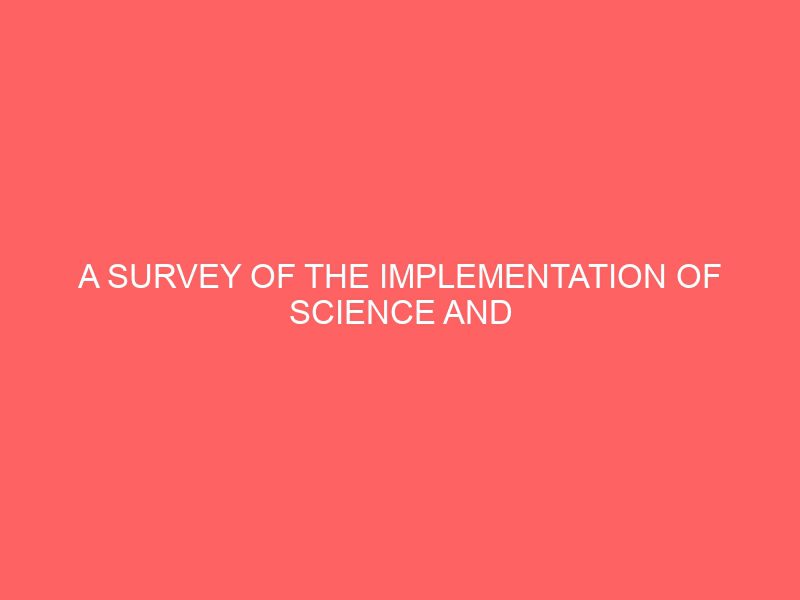Description
Abstract
This project is on a survey of the implementation of science and vocational education programme, a case study of Kano state. This study examines the implementation of science and vocational education programmes in Kano State. Four (4) research questions were formulated to guide the study. A socio-technical system approach supported by human capital theory provided the framework for the study. A descriptive survey design was used for the study and the population was comprised of the four public technical colleges in Kano State. A sample of 40 teachers and 200 students were selected using a stratified systematic sampling technique. Respondents completed a 15-item Science and Vocational Education Programme Implementation Assessment Questionnaire (SAVEPIAQ) designed by the researchers. This study finds that the quality of teaching staff in vocational and technical schools is moderately high, but relatively inadequate. Science and Vocational school facilities in Kano State are also inadequate and in poor condition. Significant differences do not exist in the mean scores of principals and technical teachers on the funding strategies adopted by government. Likewise there were no significant differences in the mean scores of principals and technical teachers on the strategies adopted by government to improve the implementation of science and vocational education programmes. This study recommends that only professionally qualified science and vocational teachers be recruited into the system. Those without professional qualifications already in the system must be encouraged to undergo post-Graduate Diploma courses in education. Finally, co-operative science and vocational education programmes should be incorporated into the science and vocational education curriculum for the purpose of providing comprehensive and practical education in our technical schools..








Reviews
There are no reviews yet.